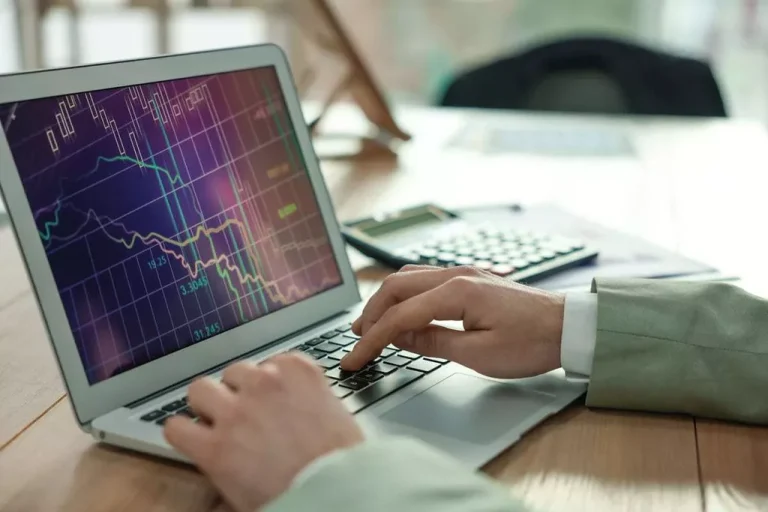You already know that they’re liable for improving liquidity and buying and selling volume out there. On the opposite hand, liquidity represents the convenience of buying and promoting securities for traders. One can say that greater buying and selling volume results in increased liquidity in the market market maker crypto. While common market makers present liquidity for numerous securities, there is a special type of market maker called a Designated Market Maker (DMM).
Understanding The Variations Between A Broker And A Market Maker
This helps the buyers maximize their positive aspects and likewise get the profit of diversification which is the essence of a mutual fund. Automated Market Makers (AMMs) have turn into a cornerstone of decentralized finance (DeFi), revolutionizing how trades are conducted on Blockchain Platforms. By eliminating the necessity for conventional intermediaries, AMMs enable more environment friendly, transparent, and accessible buying and selling. We have a digital advertising training program, however we don’t https://www.xcritical.in/ advertise the primary product that’s for sale.

What’s The Position Of A Market Maker In The Market?
The revenue from a distinction within the costs is a reward they earn for taking the risk. Market Makers must be compensated for the risk they take; what if he buys your shares in IBM then IBM’s stock worth begins to fall earlier than a willing purchaser has bought the shares? To prevent this, the market maker maintains a spread on each stock he covers. Using our earlier Cryptocurrency wallet instance, the market maker might buy your shares of IBM from you for $100 each (the ask price) and then offer to promote them to a purchaser at $100.05 (bid). The difference between the ask and bid price is only $.05, but by buying and selling hundreds of thousands of shares a day, he’s managed to pocket a significant chunk of change to offset his risk.
Ecn System Vs Market Maker – What Is Finest In 2023
ETFs are a passive funding product wherein the only purpose of the fund is to track the efficiency of the index subject to tracking errors. That’s as a end result of we are not making an attempt to persuade individuals who wish to be taught digital marketing, to learn it from us, as a substitute, we are attempting to persuade people to learn digital marketing. We promote digital marketing courses at LearnToday and we always say, our competitors is not the opposite ed-techs who promote related merchandise. Our real competition is individuals deciding not to enroll in a digital marketing course. An ECN (electronic communication network) is the opposite change mannequin obtainable to market individuals. In order to grasp the meaning of ECN, let’s proceed with our analogy above.
Why Select Nadcab Labs For Dex Market Makers?
Kindly note that, this text doesn’t constitute an offer or solicitation for the acquisition or sale of any financial instrument. For instance, when you’re using a buying and selling platform in India and place a buy order, a market maker could promote you the inventory from their stock, even if one other particular person vendor isn’t out there at that second. Conversely, if you want to promote a stock, the market maker could purchase it from you and add it to their stock. If the market maker acts as a dealer as properly, he must keep separate books of accounts for the transactions in his position as a market maker and separately for his position as a dealer. The two units of transactions must be reported every day to the Stock Exchange in a segregated method.
Market makers have been round since the inception of stock exchanges; it is only now that they are really coming into focus. After all, when there could be demand for a product, a provider at all times comes to the rescue. In short, an trade’s biggest hurdle is to get buyers and sellers to execute on its change versus different exchanges. This is particularly true for exchanges that are lagging behind others when it comes to turnover done, or even more urgent, for an change seeking to start its operations. Market makers are the massive banks and monetary establishments that help in providing liquidity within the markets. Market makers are sometimes appointed by the fund houses that launch ETFs to counter the liquidity points.
In this model, a financial institution or brokerage house decides to actually create a marketplace for the advantage of individuals. They do that by buying securities in bulk, holding them, and offering them up on the market at fixed prices. Since these brokerages are themselves making the marketplace for that safety, they’ll decide the extent of supply obtainable and, in this way, management prices. The costs, nonetheless, aren’t simply set based on the whim of the market makers. Rather, they are constantly adjusted to reflect (albeit indirectly) the dynamics of supply and demand for that specific safety.
So, the other buyers who are willing to purchase the shares buy on the ask quote value, i.e., $20.20 or who are wanting to sell, sell on the bid worth, i.e., $20.00. The incomes of the market maker is the difference between the bid and ask quote, i.e., $0.20. That means the market maker earns the revenue in buying and promoting activity. But market makers trade hundreds of thousands of shares, so as the variety of traded shares will increase, earnings also will increase. Market makers inherit a excessive level of threat, due to the excessive number of models of shares they maintain. A vendor who is in a position to buy or promote particular security like bonds or shares at the quoted value is recognized as a market maker.
- Additionally, blockchain know-how presents potential benefits when it comes to transparency and safety, although its adoption in market making remains in the exploratory part.
- The trading avenues discussed, or views expressed may not be appropriate for all investors.
- They wouldn’t trouble to look for choices as a end result of you could have already constructed the trust with content material.
- While stealing prospects from competitors can’t be ignored, it comes as a side impact of being the market maker.
Current shareholders can even adjust their positions based on market makers’ entry and exit. Market makers purchase giant quantities of targeted illiquid inventory and hold the shares in their inventories. Afterwards, they create bids that mention the quantity, cost, and selling worth. Once they receive buy orders from investors, they shortly sell the mentioned amount of shares at the pre-mentioned selling worth. If an investor desires to purchase XYZ Company’s shares, they will buy them from the market maker at the ask worth of ₹50.05.
Once they get an order, they sell the held shares immediately and help improve the trading volumes. Now that you realize the market maker which means, you can make better-informed choices by analysing their bids and buying shares easily. The most common instance of market makers are stockbroking homes that provide investing and buying and selling companies. Since these houses make use of inventory market consultants, they are appointed by inventory exchanges to make sure there is enough liquidity available within the market.
This means they don’t have an opinion on the future value of the shares they’re promoting. Market makers try to profit from the spread and often mitigate threat by attaching their investments with correlated devices corresponding to futures or options. Of course, there’s the obvious two sides to every transaction- a purchaser and a vendor. But in the capital markets, there could be additionally the celebration that gives the liquidity- that is, the one who’s quoting a bid or ask; after which there might be the celebration that “hits” the bid or ask.

Market makers concerned in enhancing buying and selling quantity and liquidity by buying or promoting securities follow specialised guidelines before partaking in activities. They can be employed by brokerage companies, inventory exchanges and trading platforms Their actions are governed by specific laws to prevent unlawful practices that manipulate market liquidity or buying and selling volume. They provide bids and ask prices while holding some securities themselves. The Indian stock market has various kinds of shares listed on the inventory exchanges. However, the stock exchanges employ market makers to ensure there could be enough liquidity and investors can simply purchase and sell their shares. They purchase the shares, hold them of their stock, and create bids for other buyers.
They also use algorithmic buying and selling to execute large volumes of trades rapidly and efficiently, minimising the influence in the marketplace. Another strategy is delta hedging, which involves taking offsetting positions to mitigate the chance of worth movements within the underlying asset. These methods require refined technology and a deep understanding of market dynamics to implement successfully. Liquidity threat is a major concern for market makers, as it could have an effect on their capability to execute trades efficiently.
Understanding the roles, mechanisms, and economic rules behind these practices is essential for anyone involved in or fascinated within the dynamics of modern buying and selling and investment. Multi-exchange integration allows market makers to function throughout various platforms from one interface, increasing trading alternatives and simplifying administration. Customizable algorithms provide the flexibleness to tailor buying and selling strategies to specific wants, enhancing general effectiveness. Many brokers offer you the chance to check out their platform with the use of a free demo account so you will get the texture for it. This can be a priceless alternative as it might assist you to in lastly making up your mind, when the time comes.
They are more generally known as specialists, Designated Broker (DB), supplier, or Authorised individuals (AP) available in the market language. Before studying about the role of market makers with respect to ETFs, it is necessary to know the meaning of ETFs and their key options. Our merchandise and our advertising is aligned towards convincing people to wish to learn digital advertising. Market makers earn a variety on every commerce, often rebated at two-tenths of a penny per share, equating to a gross revenue margin of roughly zero.01%. This earning mechanism implies that if no commerce happens, no revenue is made, and a slight decrease in asset value can considerably impression profitability. The Market Maker and ECN models are two completely different codecs that buying and selling brokerages can select to adopt.
